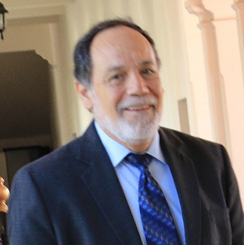Metal Recovery from Printed Circuit Boards
A special issue of Minerals (ISSN 2075-163X). This special issue belongs to the section "Environmental Mineralogy and Biogeochemistry".
Deadline for manuscript submissions: closed (20 May 2023) | Viewed by 9849
Special Issue Editors
Interests: hydrometallurgy; precious metals recovery; solvent extraction; metals recycling from PCB
Special Issues, Collections and Topics in MDPI journals
Interests: hydrometallurgy; wastewater and wastes treatment; thermodynamic and kinetics analysis
Special Issues, Collections and Topics in MDPI journals
Special Issue Information
Dear Colleagues,
This Special Issue aims to publish high-quality original research papers and critical reviews featuring the fundamental aspects and industrial applications in the field of processing and extractive metallurgy of secondary resources.
Every year, natural mineral resources are further depleted, or their extraction becomes more difficult. In addition to the decrease in metal grades and contents, most of the minerals in the Earth's crust are becoming more difficult to extract and require more complex processing, so their exploitation is unaffordable. That is why it is necessary to look for alternatives in electrical and electronic waste equipment trying to make the most of the extraction and recovery of metals. Recently, the production of waste of electrical and electronic materials globally has been considered a potential source of base metals and precious and platinum group metals, and strategic metals, such as lithium and rare earth metals. It is important to investigate the extraction of metals using physical and chemical separation methods and advanced analytical techniques, applied mineralogy, process design, and modeling. The environmental aspects of mineral processing are also covered.
Physical separations: comminution; classification; sorting; gravity, magnetic and electric concentration; froth flotation, coagulation, and flocculation.
Chemical (hydro /pyro) processes: Oxidation of metal components, extraction of metals, leaching and bacterial leaching, concentration and purification of metals in solutions, precipitation, and the electrowinning of metals. Drying, calcination, sulfide roasting, smelting, oxide reduction, conversion, and refining metals at high temperatures.
Thermodynamic and kinetic analysis of the leaching and precipitation of metals; equilibrium studies in extraction by solvents and ion exchange resins; equilibrium studies at high temperatures; electrochemical studies; modeling of solid–liquid systems; Multiparticle systems.
Papers presenting fundamental studies and discussing the above-mentioned aspects of metal recovery from printed circuit boards are invited for this Special Issue.
Prof. Dr. Jesús Leobardo Valenzuela-García
Prof. Dr. Francisco Raul Carrillo Pedroza
Guest Editors
Manuscript Submission Information
Manuscripts should be submitted online at www.mdpi.com by registering and logging in to this website. Once you are registered, click here to go to the submission form. Manuscripts can be submitted until the deadline. All submissions that pass pre-check are peer-reviewed. Accepted papers will be published continuously in the journal (as soon as accepted) and will be listed together on the special issue website. Research articles, review articles as well as short communications are invited. For planned papers, a title and short abstract (about 100 words) can be sent to the Editorial Office for announcement on this website.
Submitted manuscripts should not have been published previously, nor be under consideration for publication elsewhere (except conference proceedings papers). All manuscripts are thoroughly refereed through a single-blind peer-review process. A guide for authors and other relevant information for submission of manuscripts is available on the Instructions for Authors page. Minerals is an international peer-reviewed open access monthly journal published by MDPI.
Please visit the Instructions for Authors page before submitting a manuscript. The Article Processing Charge (APC) for publication in this open access journal is 2400 CHF (Swiss Francs). Submitted papers should be well formatted and use good English. Authors may use MDPI's English editing service prior to publication or during author revisions.
Keywords
- hydrometallurgy
- biometallurgy
- pyrometallurgy
- modeling, simulation
- environment, recycling
- flotation chemistry






